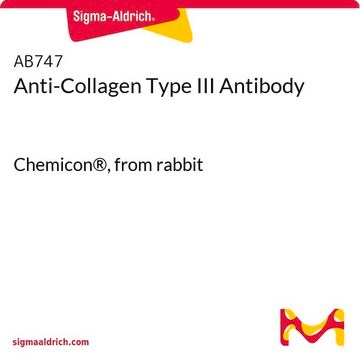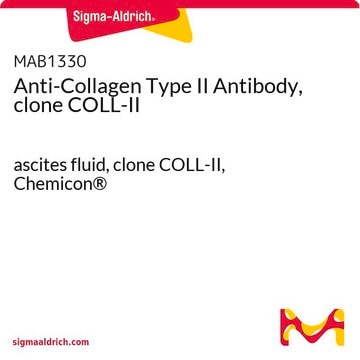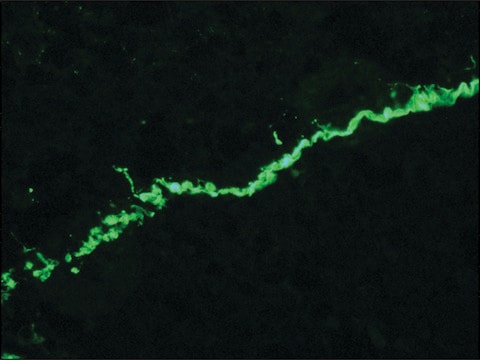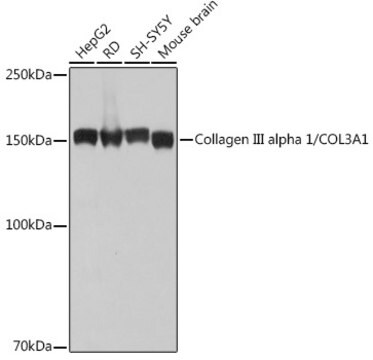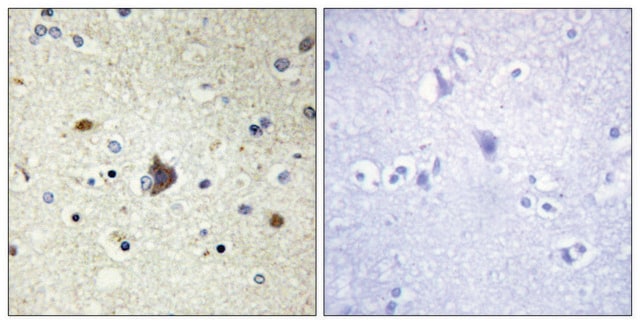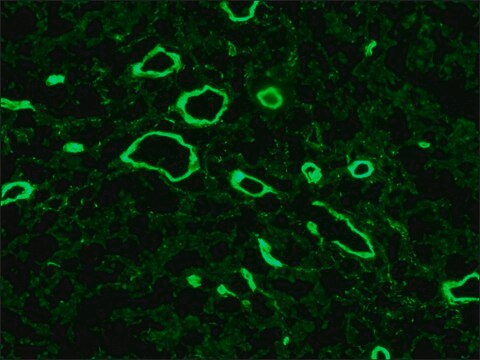SAB4200749
Anti-Collagen Type III antibody, Mouse monoclonal
clone FH-7A, purified from hybridoma cell culture
Synonym(s):
Anti-COL3A1, Anti-Collagen alpha-1(III) chain
About This Item
Recommended Products
biological source
mouse
Quality Level
antibody form
purified from hybridoma cell culture
antibody product type
primary antibodies
clone
FH-7A, monoclonal
form
buffered aqueous solution
mol wt
~70 kDa
species reactivity
rat, human
concentration
~1.0 mg/mL
technique(s)
ELISA: suitable
immunoblotting: suitable
immunofluorescence: suitable
immunohistochemistry: 10-20 μg/mL using heat-retrieved formalin-fixed, paraffin-embedded rat skin sections.
isotype
IgG1
UniProt accession no.
shipped in
dry ice
storage temp.
−20°C
target post-translational modification
unmodified
Gene Information
human ... COL3A1(1281)
General description
Monoclonal anti-collagen type III specifically recognizes native and denatured collagen type III from human 1 and rat 2 origin. It does not recognize collagen types I, II, IV, V, VI and X.
Collagen type III, also known as collagen α-1(III) (COL3A1), is encoded by the gene mapped to human chromosome 2q24.3-q31. It is the highly expressed collagen in blood vessels and hollow organs.
Immunogen
Biochem/physiol Actions
Physical form
Storage and Stability
Other Notes
Not finding the right product?
Try our Product Selector Tool.
recommended
Storage Class Code
12 - Non Combustible Liquids
WGK
nwg
Flash Point(F)
Not applicable
Flash Point(C)
Not applicable
Certificates of Analysis (COA)
Search for Certificates of Analysis (COA) by entering the products Lot/Batch Number. Lot and Batch Numbers can be found on a product’s label following the words ‘Lot’ or ‘Batch’.
Already Own This Product?
Find documentation for the products that you have recently purchased in the Document Library.
in a Family with Aortic Aneurysms
Our team of scientists has experience in all areas of research including Life Science, Material Science, Chemical Synthesis, Chromatography, Analytical and many others.
Contact Technical Service
